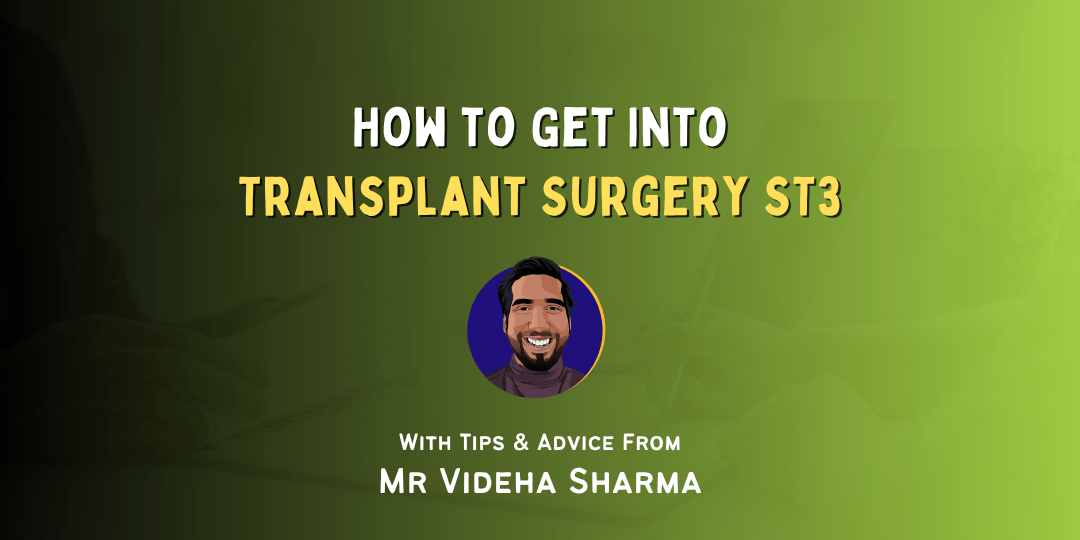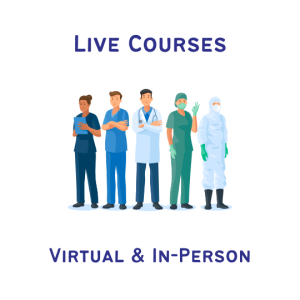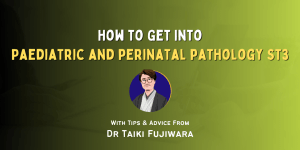
Published October 24, 2025 | Updated October 24, 2025
By MedCourse
Useful, relevant, and interesting content for UK Junior Doctors.
About the Author

Videha Sharma, Clinical Innovation Lead (ex-specialty trainee in General Surgery/Renal Transplantation), Manchester, UK
I was a speciality trainee in general surgery, with a sub-speciality interest in transplantation (kidney/pancreas).
I completed a PhD in Health Informatics and was selected for the National Medical Director’s and Topol Digital Health Fellowships.
I am now the clinical innovation lead at the Pankhurst Institute for Health Technology at the University of Manchester.
Courses & Conferences to Attend
- Future Surgeon’s Key Skills
- Basic Surgical Skills
- Care of the Critical Ill Surgical Patient
- Advanced Trauma Life Support
- MRCS practice OSCE anatomy (Royal College of Surgeons (England))
- North West Medical Leadership course
Conferences:
Association of surgeons in training
- Mandatory courses, which I recommend booking onto as early as possible, include BSS, CCRISP, and ATLS.
- Even earlier, as a medical student, the Royal College of Surgeons’ Edinburgh’s offers a course titled ‘Future Surgeons: Key Skills’
- In addition, I would consider Core Lap Skills early, such as during CT2 if possible (non-mandatory)
- Finally, if in non-training specialty posts (LAS/LAT), and set on a career in transplantation, I would consider the National Organ Retrieval Service (NORS) masterclass
- Conference-wise, I would recommend targeting poster/presentation submissions to the following: British Transplant Society, European Society of Transplantation, and American Society of Transplantation.
How to Maximise Your Portfolio
1 – Identify a mentor who inspires you and motivates you to pursue a career in that specialty – ask them: “Will you please be my mentor?” – this can involve meeting them once a month for a 30-minute virtual call to tell them what you have been doing and for them to guide you.
2 – Surgery is a busy specialty, but also offers some “dead time” – in between cases, post-clinic afternoons, night shifts. Try to use this time to be productive and build your CV – write papers, collect data, speak to registrars in your specialty
3 – Writing papers/publishing is hard – the hardest part is making a start. When you are given a project opportunity, eg. Let’s audit how many patients are readmitted to hospital following open appendicectomy; write the outline of the paper before you even start doing anything else, the introduction, methods, space for results and discussion – this can all be revised as you do the project but thinking about your output at the start of a project will 1) help you refine your methodology and identify how to make your project more novel and thus publishable 2) make you more likely to complete it and see it through
Making the Most of Your Day Job
Surgery is a specialty that is demanding specialty – it requires time and commitment; though this may be unpopular, what helped a lot (especially on operating days) was coming in early (early). Patients are usually expected to arrive between 7 and 730 and by being there before then, allows you to prepare consent forms, review medical notes and revise any anatomy – in addition, by arriving before the consultant and completing these tasks (which are an excellent learning opportunity), you are more likely to be offered the opportunity to undertake (parts of) the operation.
Making the Most of Transplant Surgery ST3 Placements
Transplantation is a unique specialty with organ donation being a big part of the practice. I would recommend any aspiring junior doctor to seek out an opportunity to accompany the team on an organ donation activity to experience this.
Be observant – as a junior doctor, you are closest to patients and the clinical front line. Ask colleagues what their challenges are and speak to patients about their experience of their care and their service. Use this knowledge to drive your research/innovation projects – this will also help any future narratives at interviews: “whilst working as a junior doctor on the transplant ward, I noticed that patients often had their catheters in for several days – after speaking to the nursing staff I discovered the department did not have a standard procedure for catheter removal and after consulting with the medical and nursing team, as well as gathering patients perspectives, I wrote the protocol, which is still in use till today”.
What About Non-Transplant Surgery ST3 Placements?
When working in a different specialty, maintain contact and your relationship with the team of the specialty you do want to pursue – remain “in the loop” and follow research activity or other developments.
Transplantation, as most modern specialties is highly multidisciplinary; understand the roles of other disciplines so you can better communicate and collaborate going forward.
Speak to your education department and use this time to teach surgical skills or lecture on surgical topics to peers and students.













